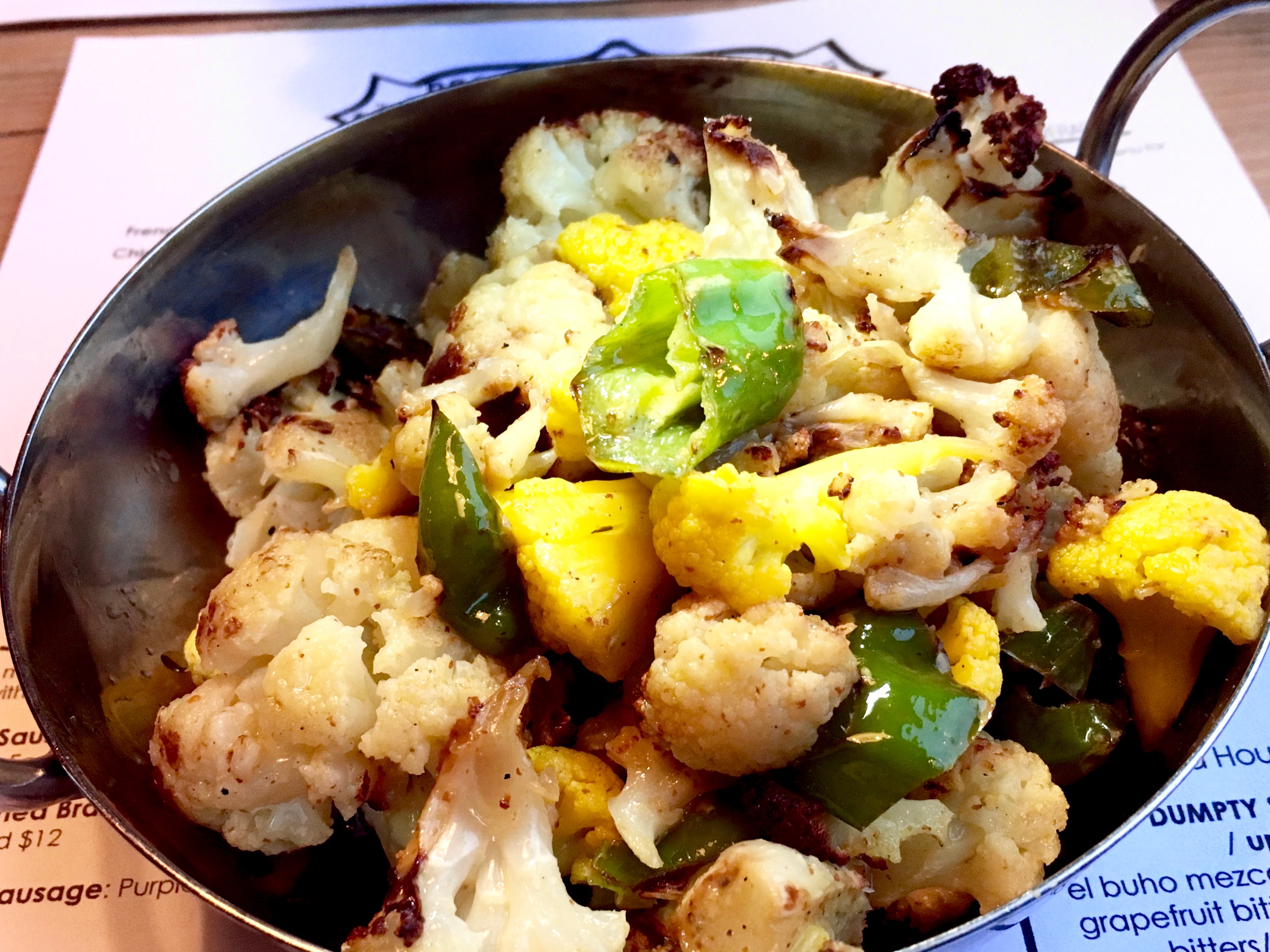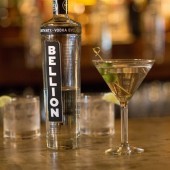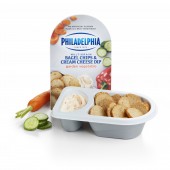Bonnie: I like supporting companies — like Wild Planet — that provide sustainably caught seafood and advocate the conservation of wild marine ecosystems while offering up good-tasting products.
It’s the folks at Monterey Bay Aquarium who taught me well that our worldwide fishing practices are depleting our fish populations, destroying habitats and polluting the water. And, that each of us can help turn the tide (pun intended). Monterey Bay offers downloadable pocket guides to assist you in choosing ocean-friendly seafood as part of its Seafood Watch program. A free iPhone app for this also is available.
Back to Wild Planet’s 100 percent pure albacore tuna and sea salt in its own natural juices. Seriously, there’s nothing added to the can along with the tuna — not even water — so there’s 5 ounces of tuna in every can with nothing to drain. And it tastes delicious.
This tuna is line and troll caught in the waters off the Pacific Northwest of the USA. That means the tuna is caught, one at a time, using lines, not nets. This tuna is younger, much lower in mercury (since mercury accumulates with age), and higher in baby fat than net caught tuna, making it richer in good-for-you omega-3 fatty acids. In fact, this tuna had half the mercury and six times the omega-3s compared with national brands.
Bryan: Somehow, I feel like it’s Christmas! Though we’ve been testing product after product for Bite of the Best, I’ve been waiting for this particular day for a long time. Tuna is my “go to” protein, for sure. For me, there are few meats that compare when it comes to true versatility of flavor…couple this wonderful taste with incredible nutritional value (high in protein and essential omega acids, while low in fat, cholesterol and calories) and you’ve got yourself the perfect food.
I eat tuna at least once a week. Actually, I’ll often end up eating tuna fish more like two-to-three times per week. Tuna melts, tuna salad, tuna sashimi, spicy tuna rolls; the world’s a seafood smorgasbord, and I’m enjoying the buffet. However, I’ve been warned more than a few times by my dietitian mother that I shouldn’t consume so much of it, mercury and all.
Now, I’ve always figured…I’m not a baby or a pregnant woman, so I’ll be fine. Don’t get me wrong, the idea of ingesting mercury is not enjoyable, but a sacrifice I’m willing to endure in order to enjoy a hearty lunch atop an everything bagel. Give me tuna or give me death! That being said, any product that wants to take the mercury out of my food, I’m all for!
Wild Planet is a sustainable fish company. You might be asking: “What does that mean?” Well, it means that Wild Planet “sources” its fish in different ways than larger, national brands. They actually fish for it. Wild Planet’s tuna are caught via the troll-method. The fish are younger and smaller than fish caught in the waters of the South Pacific (where the majority of supermarket-brand tuna is caught). The age and size of the troll-caught albacore allows it to have significantly higher omega-3 levels, while even more importantly, achieving lower mercury levels.
FDA tests for mercury in albacore arrived at the following comparison:
Wild Planet Wild Albacore Tuna average mercury test result: 0.17ppm vs. national brands albacore average mercury test result: 0.45ppm
While the FDA maximum allowable level of mercury is 1.0 ppm, a 0.00-ppm mercury is the true goal. Though they’re not there yet, the Wild Planet tuna fish has mercury levels that are 62 percent less than your average store brand. That’s a huge step forward.
Beyond that, this is just really great tuna fish! This albacore has a firm texture and a rich taste. Wild Planet Albacore Tuna is overly simple (a quality all too lacking in many foods). They hand pack a raw tuna steak, seasoned with a touch of sea salt, into each can. There are absolutely no added oils, no water or fillers. The tuna is cooked once, allowing it to retain all of the natural juices and omega 3 oils. Oddly, we’ve been instructed not to drain Wild Planet tuna (a quite foreign concept to me). Apparently, the juices enhance the flavor of the line-caught tuna even more!
Tuna fan? Well, this is tuna bliss…
Eric: In the overwhelming conformity of the canned fish aisle, Wild Planet Wild Albacore Tuna stands out as a welcomed addition in both corporate philosophy and taste. Albacore tuna, also known as “the chicken of the sea,” is second only to shrimp in popularity and consumption in the United States. The danger with tuna, aside from the potentially toxic levels of mercury, is the way in which it is caught. Long lining, as many of the large commercial companies do, produces “by-catch” — the unwanted fish and marine creatures caught during the commercial fishing. In the tuna industry, by-catch has led to threatened levels of dolphins, birds and other marine species.
In an effort to counter the effects of by-catch, companies such as Wild Planet have advocated for sustainable methods of fishing such as “troll-caught” and “pole and line.” It is refreshing to read about, and taste the products of, a company like Wild Planet. The price of its products might be higher than those of the commercial tuna companies, but the taste (and the company’s mission) will help remind you of why you chose to give it a try.
Wild Planet Albacore Tuna is available in the BiteoftheBest.com shop






I am very impressed with the information about this product. Good for the planet; good for me!! Thanks for letting us know about Wild Planet Albacore Tuna.
I think it is great that there is a tuna company out there concerned about our planet not just their profits.
Too many other animals die because of longline fishing. Seabirds,such as albatrosses dive on the baited hooks. Sharks,and Loggerhead sea turtles get caught in the lines as they think it is an easy meal.
The Black Footed Albatross was recently put on the endangered species list because of longline fishing.The number of Loggerhead sea turtles that have died because of longline fishing is so great that they may go from the Threatened to Endngered list.
I’ve recently started a blog, the information you provide on this site has helped me tremendously. Thank you for all of your time & work.
Just curious about the mercury content… says above that Wild Planet Albacore contains 0.17ppm, yet in the Defenders of Wildlife study from 2009, it shows Trader Joe’s Tongol at 0.017ppm – and that’s a full order of magnitude (100x) less mercury. So is this just an inherent difference in Tongol vs. Albacore? If so, than at least on considerations of mercury load, Trader Joes has got Wild Planet beat by a mile simply from the type of tuna they use. I do realize there are myriad other benefits to the production methods of WP vs. TJ… just saying.
I’m Sue, the Marketing Manager for Wild Planet Foods and am happy to reply to Jason’s question. It is true that Tongol tuna, like Skipjack tuna is a tuna species with lower mercury content overall compared to albacore; a reading of 0.017 ppm is 10 times less quantity than 0.17ppm.
Wild Planet only sources products rated “best choice” by Monterey Bay Aquarium Seafood Watch; Tongol tuna is not so rated (see http://www.montereybayaquarium.org/cr/SeafoodWatch/web/sfw_search.aspx?s=tongol%20tuna), that is why we have chosen to produce pole-caught Skipjack tuna as our lowest mercury content tuna. Its content is comparable to Tongol.
My wife just picked up some of this and we’re going to have Tuna Fish Casserole with it. She knows I always go for healthy, wild-caught foods, organic foods including dairy.
I’m anxious to try this out. She picked it up in the health food aisles at Wegman’s. I’ll write back about the taste.
Why is it processed in Viet Nam?
I have to similar question as Charlyne….why Vietnam and how does Wild Planet ensure that their Vietnamese “partners” adhere to strict manufacturing processes and cleanliness? I put partners in quotes because that is what they are called on the Wild Planet website, which tells me these are 3rd party independent companies that outsource the canning and portions of the processing.
I do like Wild Planet’s products and have tried several, including the great sardines. I am somewhat befuddled by the “partners” claim versus a full description of the relationship and the lengths that Wild planet goes to oversee their “partners”. Who knows perhaps Wild Planet has American employees in Vietnam overseeing the partners, which would be refreshing to know.
Charlie — I contacted Sue Jacobs the marketing manager for Wild Planet about your inquiry — she asked me to respond,
saying that Wild Planet has that answer on their website as your query does come up from time to time.
Check out this link: http://www.wildplanetfoods.com/Facts-and-Questions.html#faq14
They also have a document written by their President and Founder Bill Carvalho that explains this in greater detail.
She asked that you email her via at the contact info on the site, and they’ll provide the document as well and answers to any further questions you may have.
Bonnie…Thanks for contacting Sue! I had previously read all of the info on their website and was anxious when I read your post thinking there was something I missed. The link in your post leads to 5 sentences spread across 2 paragraphs, none of which goes into detail regarding the concerns I expressed in my post above. I could not find on their website a document written by their President & Founder regarding their relationships with their partners nor the quality controls in place to manage their partners. I’m not trying to cause any friction and will drop it here….like I said in my post, I like their products and think their sardines are great.
Charlie,
You’re welcome…Just for information,I will share with you that document as Sue emailed it to me. Check your email.